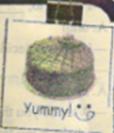题目内容
He did little housework at home and his wife was ________ him about that.
- A.angry with
- B.worried about
- C.kind of
- D.pleased with

Amy's family has fun. They mail a diary(日记簿、日记) to each other. Everyone writes something in it. Amy's brother is open. He tells many things about his life. Amy's sister is Lazy. She doesn't write much. Amy's dad writes stories. Her mom is talkative. She writes a lot. Everyone enjoys the diary.





| Hello, dear family! I am having a fun week here at The Mall. I had lunch with Pan and Jack on Monday. On Tuesday, I designed a new dress. Yesterday, Tom told me a funny joke. He always makes me laugh! | Hi, everyone! I made a chocolate cake yesterday. That’s Amy's favorite. I wish I could mail you a piece, Amy! It's really delicious. Today was warm and sunny. Your father and I went for a walk in the park. We also waited your Aunt Betty. She told us some good news. Your cousin John got a new Job! Oh, I'm writing too much, aren't I? We really miss you all. Take care! | |
| Hi, all! Last week I was feeling sad. I had a bad day at work. My boss was angry at me. But the next day was better. I did a good job and my boss was very happy, so I felt better. Sometimes my work is hard. But I am really thankful for my job. | ||
| Dear ones, let me tell you a story. A long, long time ago, A man lived a house on a hill. He had a candle. He lit the candle every night. Everyone could see the light. Then one night, something wonderful happened… | ||
Hello! I mi ss you all. However, I don't have much time to write this week. I'll write more next time. ss you all. However, I don't have much time to write this week. I'll write more next time.Bye, everyone! |
| A.On the same family diary. | B.On their own diaries. |
| C.On Amy's diary. | D.On Mother's diary. |
| A.On Monday. | B.On Tuesday. | C.Yesterday. | D.Today. |
| A.The job makes him sad. | B.The job always gives him pleasure |
| C.The job is too easy. | D.The job is a challenge. |
| A.She made a chocolate cake. | B.She did nothing but walk in the park. |
| C.She got a new job. | D.She went for a walk and visited Aunt Betty. |
| A.Amy and her family. | B.Amy and her diary. |
| C.A family's diary. | D.Amy's father writes stories. |
Did you ever wonder how some of your favorite foods, products or toys came about? Believe it or not, they may have been an accident, or a failure of some other intention. Below, we found three mistakes we’re thankful for turned out to be what they are.
1. Most historians hold that the Chinese invented fireworks in the 9th century when they discovered how to make gunpowder. Story has it that a Chinese cook accidentally mixed together what were then considered common kitchen items and noticed they burnt. When put tightly in a bamboo tube and lit, it blew up.
2. In May of 1886, a law led John Pemberton, a pharmacist(药剂师), to rewrite the formula(配方) for “Pemberton’s French Wine Coca”, his popular headache treatment. Containing sugar instead of wine as a sweetener, the outcome became something for Coke, which was later mixed with carbonated(碳酸) water. His bookkeeper suggested the name Coca-Cola because he thought the two C’s would look good together, which is how what we call Coca-Cola, a world-wide drink came into being.
3. During World WarⅡ, scientists at the University of Birmingham invented the magnetron(磁控管)—an important heat-producing part of the microwave oven. While working for Raytheon Corporation after the war, the American engineer Percy Spencer was testing the magnetron when a chocolate bar in his pocket melted. He went on to test other foods including popcorn kernels(仁), and found it to be a much more efficient way to cook. In 1947 Raytheon came out with the first restaurant microwave oven, which was six feet tall and weighed 750 lbs.
【小题1】The right time order of the three inventions should be ________.
| A.fireworks, the microwave and Coca-Cola |
| B.fireworks, Coca-Cola and the microwave |
| C.Coca-Cola, fireworks and the microwave |
| D.the microwave, Coca-Cola and fireworks |
| A.looking for a way to melt his chocolate |
| B.trying to know how a magnetron could cook |
| C.working to know how the magnetron works |
| D.asked to invent a restaurant microwave oven |
| A.爆炸 | B.膨胀 | C.升华 | D.蒸发 |
| A.Experiments make great inventors of our time. |
| B.Nothing is impossible if one tries each day. |
| C.Inventors come out of hard work at any time. |
| D.A small incident may lead to a great invention. |